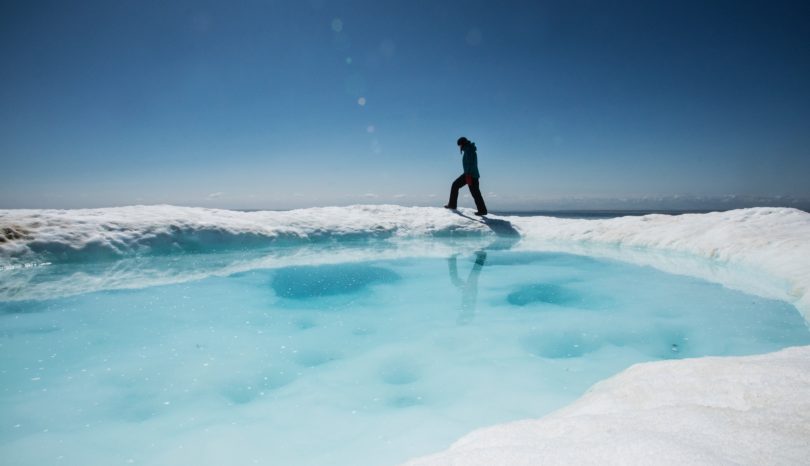Oceans North strives to use the best available information in collaboration with northerners and indigenous organizations to support a vibrant Arctic environment and healthy northern communities.
Relying on Indigenous Knowledge
Indigenous Knowledge is key to developing conservation solutions that consider the broad context of life in the Arctic and support traditional and sustainable uses of the marine environment, such as subsistence hunting and harvesting. Many of our projects are proposed and initiated by Indigenous Knowledge experts. In all our efforts, we seek guidance and advice from local elders, harvesters and community members.
We also recognize that management strategies in Indigenous regions must be based on accumulated Indigenous Knowledge and that Indigenous managers must oversee this work.
We are in the midst of an exciting paradigm shift in which the overarching conservation objective for sensitive areas in the North is no longer described as an effort to protect such areas from human activity. Indigenous leadership has taught us that it is possible to protect sensitive areas for many reasons, including for communities. This recognizes that peoples with a strong harvesting culture have the most to gain from sound conservation and locals have the most to contribute in management of sensitive ecological areas.
Science-Based Solutions
Scientific methods provide essential tools that can help northern regions detect, understand and respond to environmental changes that are observed locally, nationally or globally. In a period of fast-paced environmental change, we look to scientific innovations and new research to support our work.
Knowledge-driven solutions are critical to the long-term health of Canada’s northern waters and the Indigenous peoples who live there. We support and carry out a variety of projects that draw on both Indigenous and local sources of knowledge as well as scientific methods. Some recent examples include:
- Hudson Bay Beluga Project: This joint project with federal scientists and Arviat hunters studied the world’s largest summer population of beluga whales. The Inuit Heritage Trust also documented an ancient Inuit hunting camp in the region.
- Darnley Bay marine mammal research: Oceans North collaborated with Inuvialuit to document beluga use of inshore waters in the western Arctic’s Darnley Bay using both acoustic monitoring and Indigenous Knowledge.
- Acoustic monitoring for marine mammals and ice edge analysis in Tasiujaq (formerly Eclipse Sound): This multiyear acoustic study has worked closely with Pond Inlet hunters and trappers and relied on their knowledge. The research is monitoring narwhals’ response to ship traffic in the sound. In another project, cameras were set up to take time-lapse photographs that track the floe edge from spring breakup to fall ice formation.

